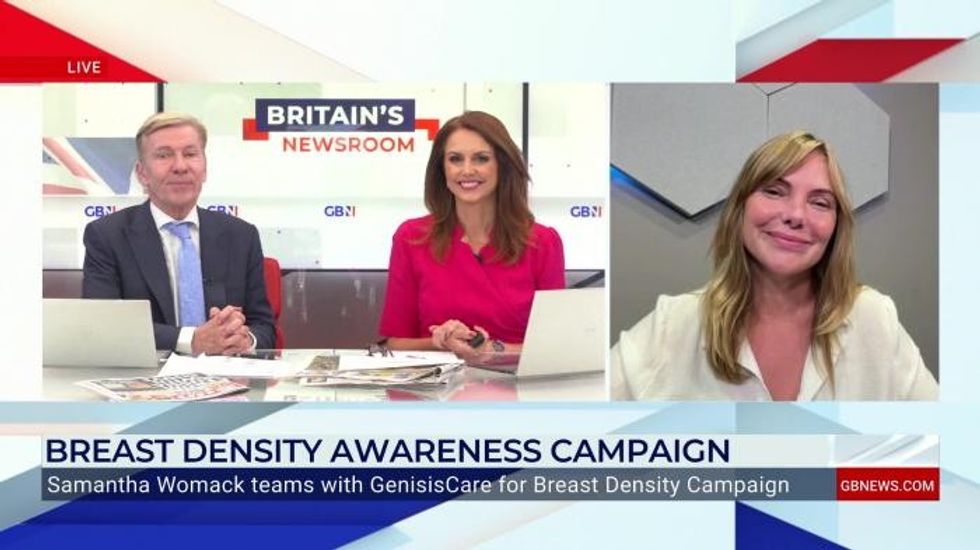Former EastEnders actress Samantha Womack has revealed to GB News the extraordinary moment she instinctively knew she had breast cancer – despite having no symptoms or lumps.
The 52-year-old, who portrayed Ronnie Mitchell in the BBC soap from 2007 to 2017, told the broadcaster she was diagnosed “a couple of years ago” after following her gut instinct to seek medical attention.
Her decision to trust her intuition proved life-saving, as tests revealed she had high-grade stage three cancer that had already begun spreading to her lymph nodes.
The actress underwent a private ultrasound scan between West End performances in late 2021, where she spotted an ominous sign on the monitor.
Speaking to Bev Turner and Andrew Pierce on GB News, she said: “I went through a series of treatments, and throughout all of it, I never heard the term dense breasts.
“In fact, I think 93 per cent of women don’t know what dense breasts are but it’s a really crucial factor in determining your likelihood of developing cancer.
LATEST DEVELOPMENTS:
BBC sets record straight on Call the Midwife axe rumours as broadcaster issues clear statementJohn Hunt in tears as BBC star shares how murdered daughter saved him in final moments: ‘A gift’BBC sets record straight on Call the Midwife axe rumours as broadcaster issues clear statement
“There are four density grades: A, B, C, and D. Grade D means you have extremely dense breasts, which means there’s a lot of fibrous tissue, making it very difficult to detect tumours on a mammogram.
“You might have a mammogram that appears all clear but that’s not always the case, because dense tissue can mask tumours.
“GenesisCare is now encouraging women to understand their breast density. Women with extremely dense breasts are six times more likely to develop breast cancer.
“I was diagnosed before I turned 50, so I wasn’t yet due for my NHS mammogram. It was instinctive for me. I didn’t have a lump, but I just felt something wasn’t right. Because I trusted that intuition and got checked, my outcome was dramatically improved.
“It turned out to be a high-grade stage three cancer, and it had already started to spread to my lymph nodes so catching it when I did was absolutely critical.
“What’s really important now is that we tell women: breast cancer isn’t just an older woman’s disease. More and more young women are being diagnosed.
“It’s vital to know what questions to ask and one of them should be: what is my breast density? Because it can tell you how likely you are to develop breast cancer.”
She added: “In retrospect, there were no physical symptoms for me. But having spoken to lots of women over the course of the last two years, there is this kind of other voice, if you like, maybe a slight change in your thinking.
“Before I’d go to bed at night, I’d immediately have a thought: Actually, I must go and get myself checked. I wasn’t thinking of any particular area, but they were thoughts that kept interrupting my normal thought pattern.
“A lot of the women I’ve spoken to have agreed with that. It’s almost like you have to take the time to really listen to your body.
“In fact, when I saw my tumour on a screen during an ultrasound, my first thought was: There you are. It was as if my brain somehow knew it was trying to find something.”
Samantha said she is “passionate” about raising awareness of breast cancer, and said it is “vital” that both women and men understand their bodies and feel empowered to ask the right questions.
